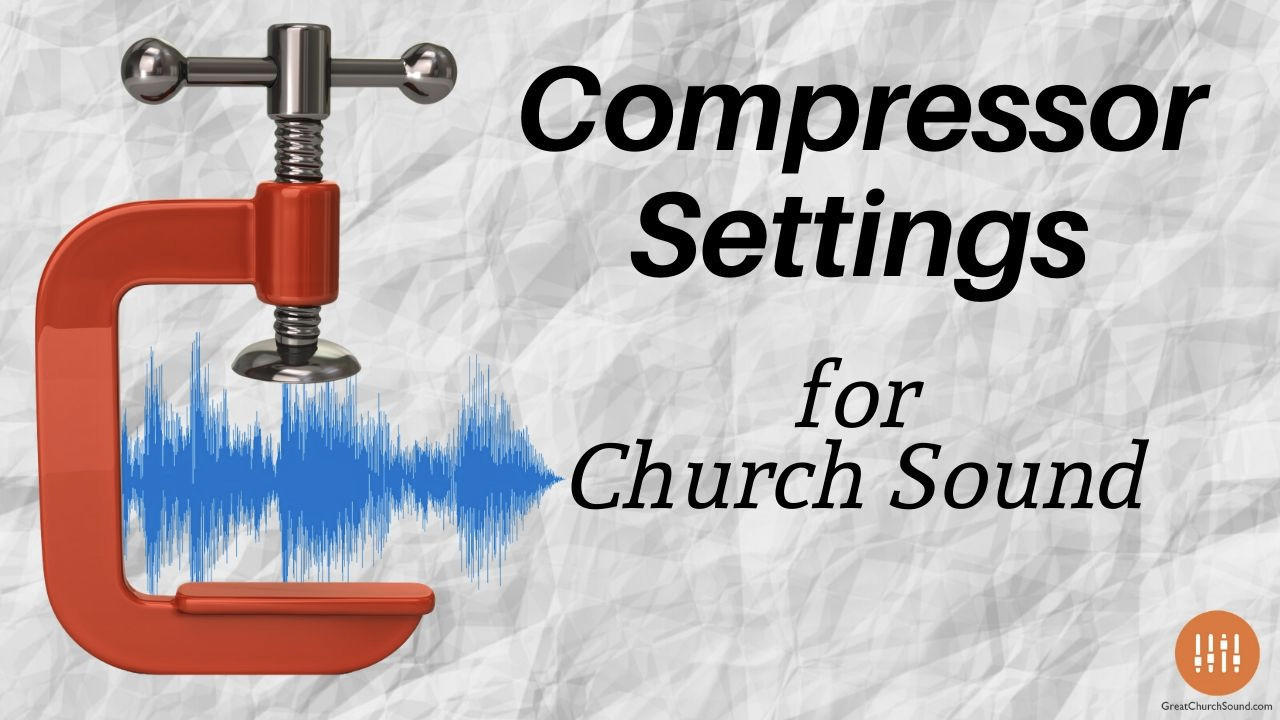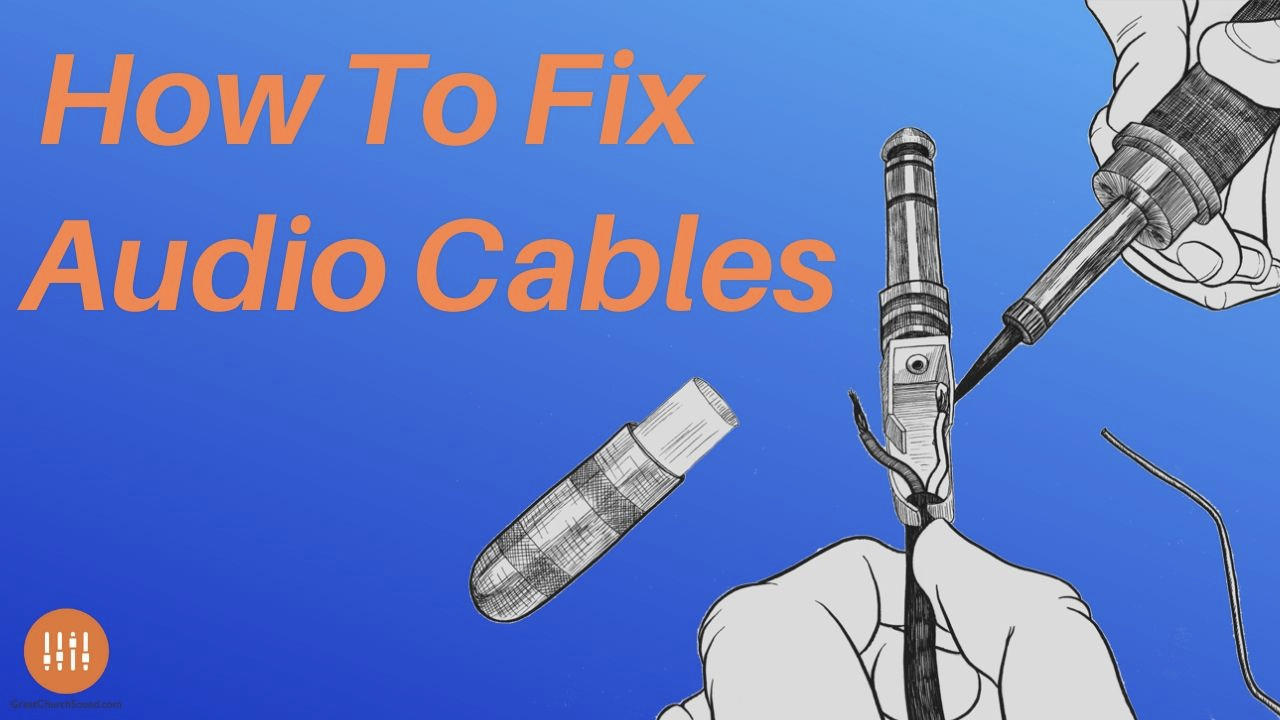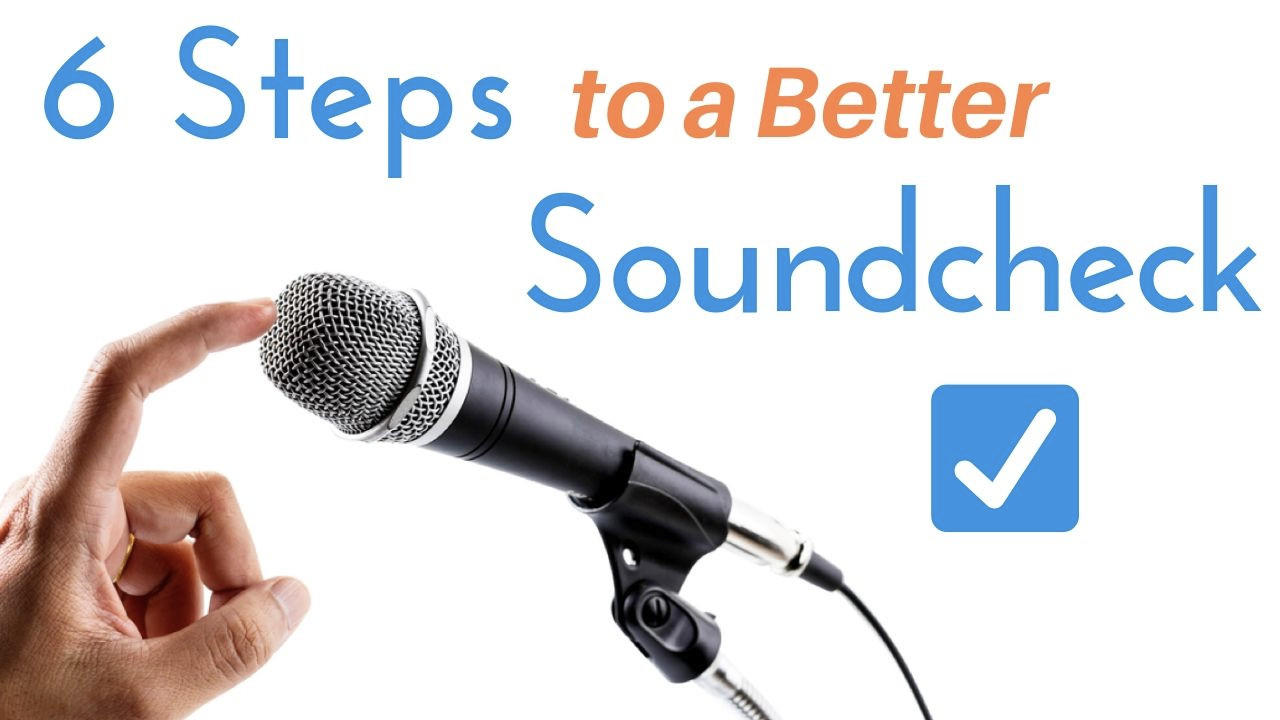Blog
How To Clean & Disinfect a Microphone

With cold and flu (and now Coronavirus / COVID-19) season here in force, there have been a lot of questions about how to properly clean and disinfect microphones.
Unsurprisingly, there is some misleading and often bad information on some of the social media threads that I’ve seen lately.
Here are some tips to help you keep those mics clean and sanitary, now and any time of year.
Why should I clean a microphone?
The recommended mic placement for handheld vocal microphones means that the microphone is very close to or even touches the singer’s face or lips. This means that spit/mucus/etc. can easily be transferred from the mouth to the microphone grill and underlying foam filter.
The body of the microphone is another surface that can be ...
Drums, Sound and Worship

Despite years of experience playing in bands and performing a variety of music styles, I was caught off guard a little bit when I started playing drums for my local church worship team.
In case you have any uncertainty about it, there's a big difference between playing drums for a gig or concert and playing drums for worship (same goes for every other musician or vocalist on stage).
Playing an instrument or singing for worship is not a performance. I know that's easy to say, but a lot of "performers" on stage can struggle with adapting their style of playing with the needs of the worship leader and congregation. I did when I was a young and enthusiastic drummer!
What does any of this have to do with sound?
As a drummer and an audio engi...
How To Teach Church Tech

At some point in our time as a church sound tech, we’ll probably be asked to teach someone “everything we know about church sound.” That can feel incredibly intimidating!
There’s nothing quite like learning how to use a new piece of gear or practicing a new technique, and then having to train someone else on your team how to be proficient with it.
The great thing about this is that it forces you to truly grasp the fundamental concepts of what you’re doing and why.
In order to teach something effectively, you need to distill the complex variables of your task into manageable concepts that your student can comprehend and then put into practice.
I know it’s easy to be dazzled by the latest piece of technology. And it’s just as easy to allo...
Compressor Settings for Church Sound

Compression is a great tool that can tighten up your mix and enhance the punch or power of certain instruments. But it can also cause some serious problems if you’re not careful.
An audio compressor is used to control the dynamic range of an audio signal, or the difference between the highest and lowest volume level.
Controlling the dynamic range can help you create a more stable sounding mix (especially when it comes to the pastor’s mic), and you’ll be able to dial in the sweet spot for certain instruments (like the kick drum).
But using the audio compressor on a digital console or a separate analog compressor can be intimidating – even if you've used one before!
It doesn't have to be super complicated. And it definitely helps to know ...
How To Fix Audio Cables

When you work with live sound, you're going to deal with a lot of different audio cables.
And sometimes those cables break.
The most common cable problem can actually happen inside of the connectors at either end of the cable where individual wires can become physically detached from the connection points.
This can happen for several reasons, but here are the 3 most common causes:
- The cable was pulled or bent in a way that the strain relief inside the connector gave way and one or more conductors were pulled loose from the connector.
- An instrument cable (guitar cable) was used as a speaker cable (stage monitor) and the high power from the amplifier circuit caused the center conductor of the instrument cable to disintegrate, losing co ...
3 Tips to Stop Feedback Fast

If you’ve recently started running sound or can’t seem to stop the ring of feedback happening in your system, then the following tips will help take care of that in no time.
And if you’ve been running sound for a while, you may feel like you have a handle on this topic. That’s great! Check out these suggestions to see if there is something you can use to help pass on the info to a new volunteer.
What is Feedback?
Before we stop feedback, let’s just paint a picture of what it is.
Feedback is simply the amplified sound of an audio signal being picked up by the same microphone that transmitted the signal and then sent through the sound system again, or re-reinforced.
This creates a loop that will go on and on, until it is stopped or until...
6 Steps to a Better Soundcheck

Never underestimate the value of a good soundcheck.
Doing a soundcheck with your sound system components before you go live seems simple enough, but it’s amazing how often this crucial step is rushed when preparing for “the main event”.
The key to successful live sound reinforcement mixing and system performance is a good soundcheck.
Even the most experienced professional audio engineers take their time to do a thorough soundcheck, even on systems they’ve used a thousand times. It’s that important.
There are different ways to approach a soundcheck, but the end result should always be quality sound from the stage to the main loudspeakers, a good monitor mix for each musician and vocalist, and a sound tech that is prepared to mix the live...
Worship Distractions - Finding & Fixing Them

Worship distractions can happen when you least expect them. And there are a variety to choose from!
Some distractions just can’t be avoided, like the baby in the back row making a less-than-joyful noise. But there are a number of distractions that can and should be completely avoided.
In terms of technical system distractions, there can be many causes.
Sometimes the media slide computer will shut down or reboot in the middle of the service, or images on the screen may flash in and out due to a cable or digital video signal issue.
Environmental control systems like HVAC can malfunction or be programmed incorrectly. The sanctuary can be too cold or too hot. And sometimes loud fans can abruptly turn on during a quiet moment of reflection.
...EQ and How To Use It

There is perhaps no better parameter for adjusting the quality of your sound than the equalizer. And it doesn’t have to be a complicated affair.
Mastering your use of the EQ for live sound will take some practice though. And it is imperative that you train your ears what to listen for. (See the helpful chart at the end of this post.)
Why EQ?
What’s the big deal about EQ, anyway?
Here are the basics:
Think of EQ as the volume control for a specific frequency range. A range is selected and the level adjusted, up or down. The range of frequencies, bandwidth or Q, can be broad or narrow, depending on the application and hardware (or software in the case of Digital Signal Processors).
The most basic EQ features a simple bass and treble (or...
In-Ear Monitors and Headphones for Church Sound

There are many options and even more opinions in the world of in-ear monitors.
And when it comes to in-ear monitors for musicians and live sound techs, it is extremely important to consider the key variables that define the ideal in-ear monitor.
Monitor Requirements for Musicians & Sound Techs
Needs for musicians and vocalists will vary slightly from those using in-ear monitors for live sound mixing (like the monitor mix engineer).
Musicians and sound techs alike will benefit from a good fit and accurate sound reproduction, but an audio engineer will likely want extra noise isolation for more defined monitoring. And musicians may prefer more or less stage noise bleed through their monitors.
What musicians need from an in-ear monitor
-
...





